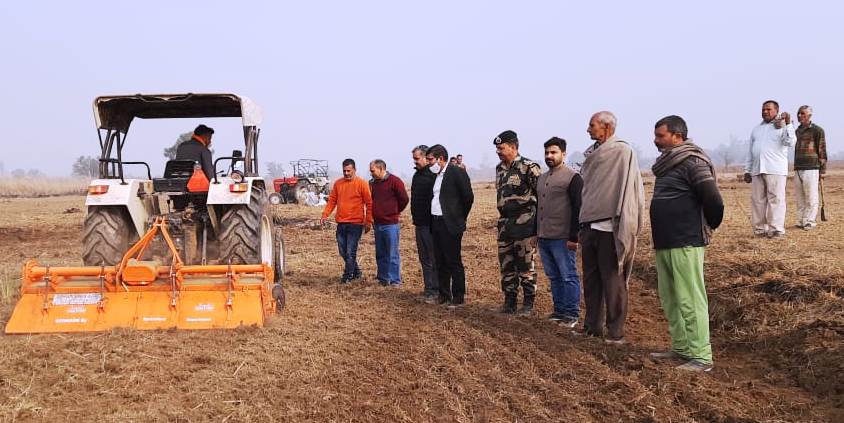The Central Government has made a significant decision with far-reaching consequences that will benefit troops in detecting the movement of adversaries along the Line of Actual Control (LAC) with China and the Line of Control (LoC) and International Border (IB) with Pakistan. The Government has called for the settlement of local people in forward areas while also ensuring that existing residents in the border belt are not forced to migrate due to a lack of infrastructure and other facilities.
Despite border fencing, cameras and patrolling, border security challenges such as infiltration, arms smuggling and narcotics trafficking persist. Setting up border villages can play a crucial role in assisting security, as they can serve as an early warning system by detecting and reporting any suspicious movements or activities along the border. They have local knowledge and familiarity with the area, making them more attuned to unusual occurrences. This allows for quick response and action to neutralise or apprehend the perpetrators. Border villagers can act as an additional layer of surveillance. Their close-knit community networks and interactions can help identify individuals involved in illegal activities and provide information on smuggling routes, hideouts or other relevant details. The settlement of villagers in forward areas will help build a strong partnership between security agencies and the community, which fosters trust, cooperation and mutual support. In certain situations, border villagers can actively assist security agencies during operations. Their local knowledge can aid in navigation, identifying safe routes, or providing information on the topography and terrain, which can be crucial for successful operations.
However, the settlement of border villagers in newly established villages comes with its own set of challenges. Employment opportunities, access to basic infrastructure, and contingency plans in times of escalated tensions are important considerations. The Government will have to focus on creating sustainable livelihood options for the border villagers, which means promoting agriculture and horticulture practises suitable for the region, providing training in relevant vocational skills and encouraging small-scale industries or cottage businesses that align with the available resources and market demand. Additionally, Government initiatives and programmes can facilitate job placements, skill development, and entrepreneurship opportunities for the villagers. For all this, adequate land allocation for cultivation is crucial for sustaining the livelihoods of border villagers. Promoting modern agricultural practices, providing access to credit facilities, and facilitating marketing channels for agricultural produce can further support the villagers’ economic well-being. Establishing essential infrastructure such as roads, electricity, water supply, and sanitation facilities is vital for the well-being of the border villages and is a major challenge for the Government. Additionally, establishing schools, colleges, and healthcare facilities within or close to the villages is necessary to provide educational and healthcare opportunities to the residents.
While setting up new border villages, a well-planned contingency plan should be in place to ensure the safety and well-being of the border villagers. This may involve temporary evacuation or relocation strategies to safer areas, the provision of temporary shelters, and arrangements for essential supplies and services during such periods of heightened tension. The Government will have to actively collaborate with local administration, NGOs, and other relevant stakeholders to address the challenges faced by border villagers.
While no security system is foolproof, the settlement of border villages can contribute to plugging loopholes and improving the overall effectiveness of border security measures. By leveraging the local population as stakeholders in safeguarding the borders, security agencies can gain a valuable ally in their efforts to curb infiltration, arms smuggling, narcotics trafficking, and other security challenges. The border villagers are our strategic assets. The establishment of border villages, along with other measures such as Border Police Posts, can be a well-timed initiative by the Government to address various challenges and enhance border security. It requires joint efforts from multiple stakeholders, including the Government, administration, security agencies, local communities, and NGOs, to ensure the success of this initiative.
Trending Now
E-Paper


